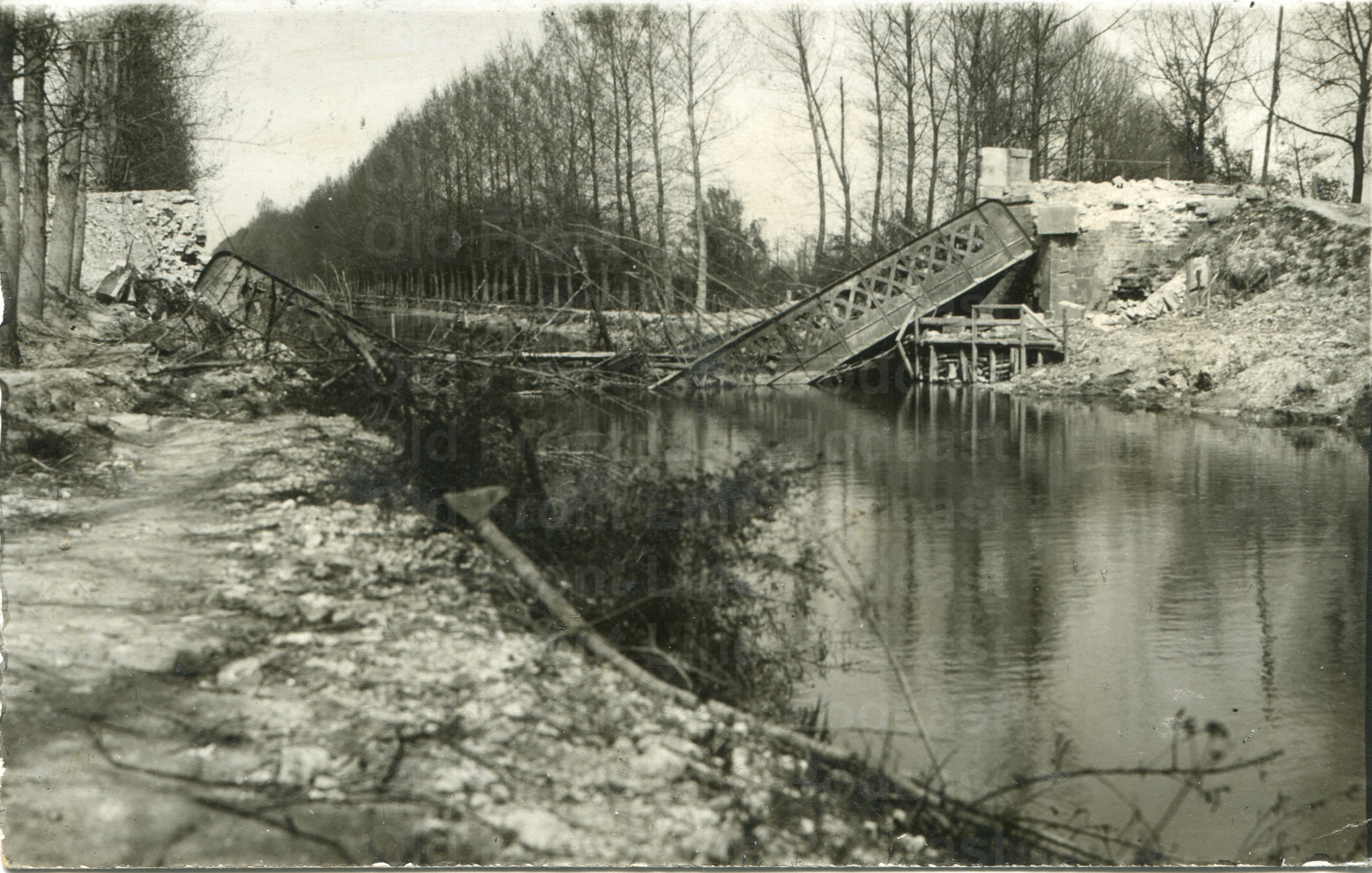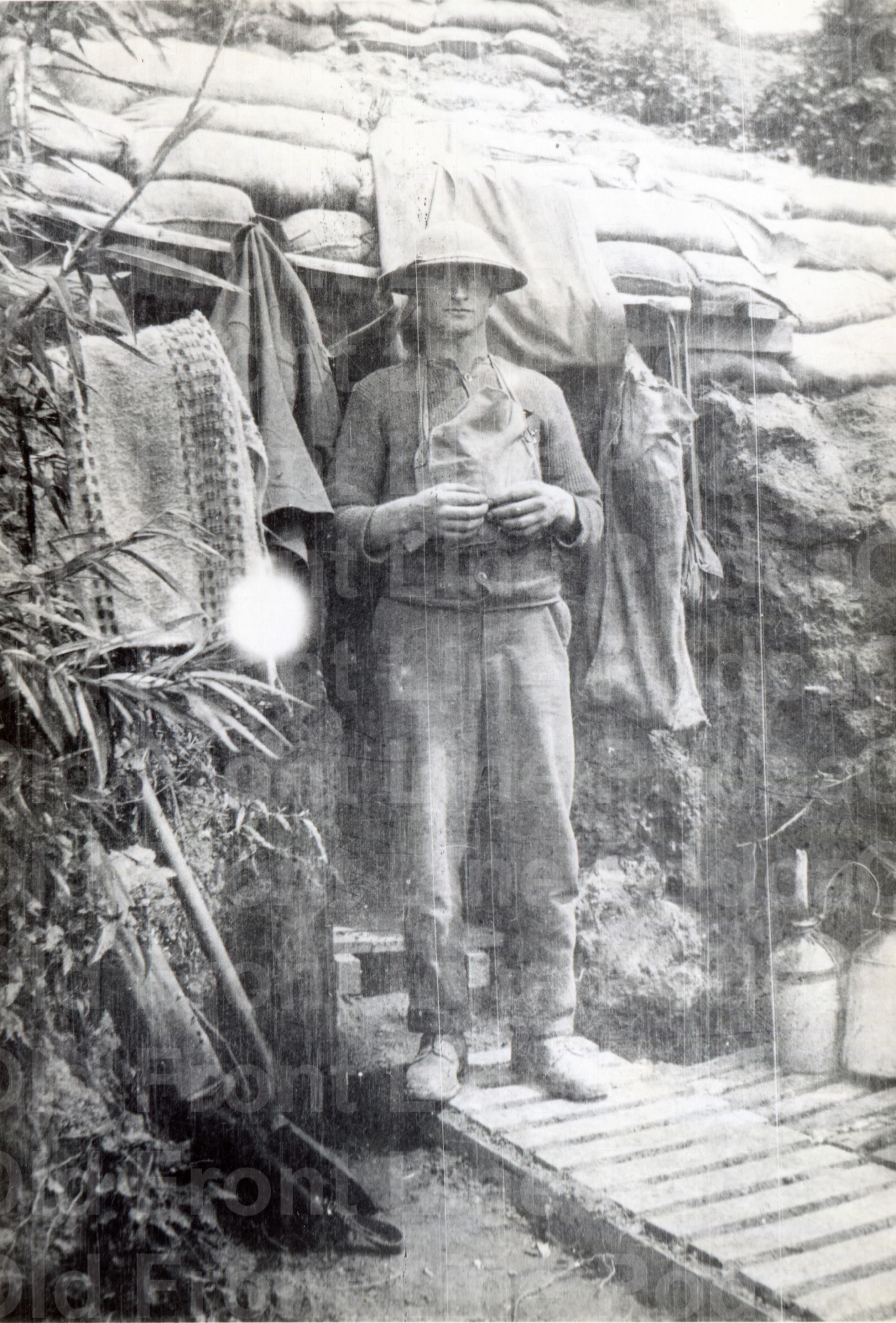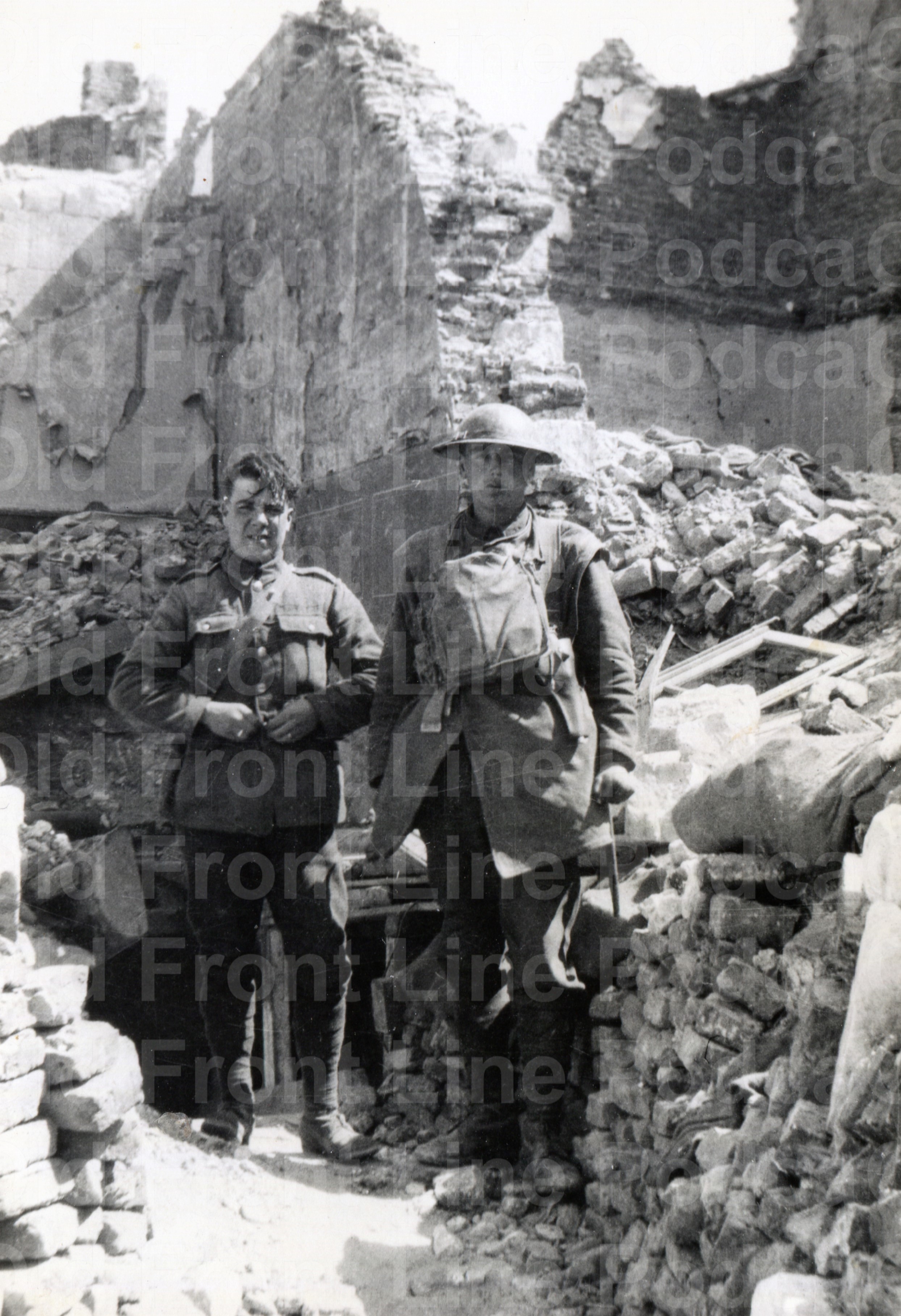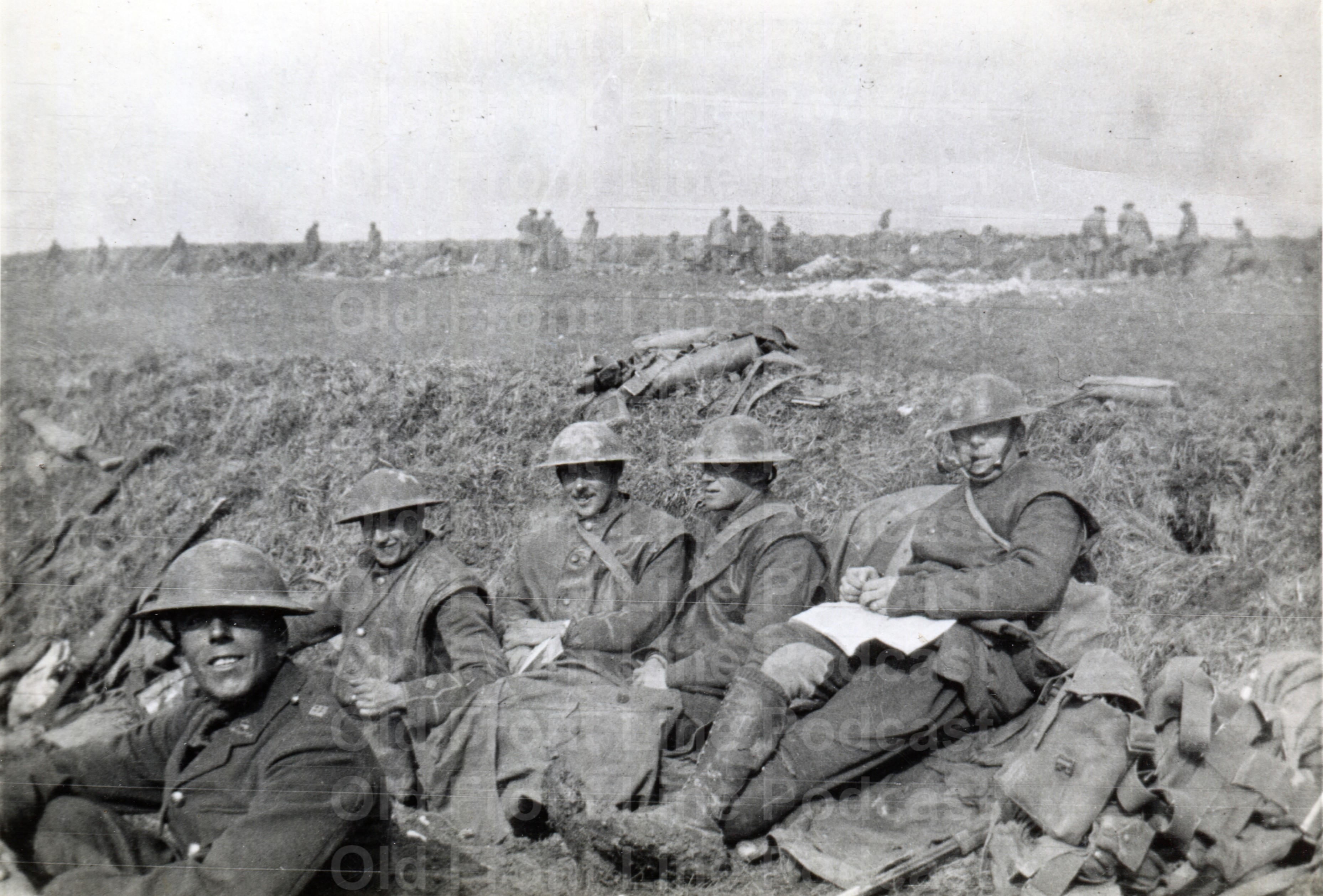Old Front Line
WW1 Podcast with Paul Reed
The Film 1917 Uncovered

In this episode we take a detailed look at the film 1917, examinging how it represents this period of the First World War, how it depicts the landscape of the Western Front and how it links us to the battlefields of the Hindenburg Line around Arras today.
Military Historian Andy Robertshaw was one of the advisors for the film 1917. You can follow him on Twitter here: www.twitter.com/andyrobertshaw1
Watch 1917


1917 Books




Podcast Extras: The Real 1917







Very much enjoyed this and agreed with everything you said about the film. It was a hommage to a generation and a work of fiction also, not a documentary. Like you, I watched it in a 1914 era cinema: the Cameo in Edinburgh. This was the King’s in 1917 and as it’s only a mile or so from Craiglockhart, I’d bet that Sassoon and Owen watched the “flicks” there. The King’s theatre is 100 yds away and I’ve often wondered if it was there that they watched the show that inspired Sassoon to write “Blighters”.
LikeLiked by 1 person
How fascinating, Peter. Blighters is one of my Sassoon favourites.
LikeLike
On doing a wee bit of hunting, it seems that SS visited a music hall in Liverpool when on a previous leave and saw a revue there that inspired the poem. I’m convinced that he and Owen and others from the Hydropathic would have used the King’s tho’.
LikeLiked by 1 person
As a film I really enjoyed it although I was a bit sceptical (probably infulenced by how accurate Joyeaux Noel was) and I know I’m not alone when you look at many of the comments on Great War pages on social media. Having listened to this podcast I have completely revised my view AND any time I read a “I thought the film was rubbish” comment I will suggest the poster listens to this podcast. Thanks once again.
LikeLiked by 1 person
Thank you, Iain!
LikeLike
I thought your analysis spot on. I’ve only seen ‘1917’ once – at the cinema – but always recommend it to others, trying not to tell them why because I’m interested to hear their views. ‘War film’ lovers often don’t like it because it doesn’t conform to type: they expect an ‘action’ film. The ending, they sometimes say, is a disappointment. My view is that it helps to treat the film like a novel. As you say, Paul, we see Schofield’s box of photographs a few times but only read the message from his wife right at the end, as he sits underneath a tree, which surely recalls the scene in which Schofield and Blake walk through an orchard. For me, this is a perfect ending, saying so much yet so sparely, offering like the film as a whole a better understanding of the generation Schofield and others represent – which can only be a good thing.
LikeLiked by 1 person
Thanks, Seb. I quite agree!
LikeLike
Paul, just an excellent podcast. I am a Canadian from Hamilton. The 91st Highlanders of Canada were recruited to form the 19th Canadian Battalion of the 4th Infantry Brigade of the 2nd CEF Division. The 4th Infantry Brigade, composed of the 18th, 19th, 20th, and 21st Bttn, arrived in June 1915, and trained at West Sandling Camp Hythe. They embarked out of Folkstone Harbour Sept 1915 and headed straight to Ypres. I visited the former West Sandling Camp farm field 3 years ago and climbed nearby Tolsford Hill where the practice trenches once existed. A local, Mike Dugdale, developed an inspiring website and did research and areal photography to identify the hundreds of meters of trench layouts that are still identifiable. In Sept 2019, the location was granted a historical designation and must be preserved. Sadly, Mike passed away in July 2020 but his website and family lives on. Just google Tolsford Hill practice trenches and you will find the website. Regards, Steve
LikeLiked by 1 person
Thanks Steve – that sounds fascinating! I’ll check that out.
LikeLike
It’s always difficult when you watch a film like this to think how much is truly accurate and what has been created for entertainment purposes I am so glad that this representation is very accurate and will be rewatching it again with your comments in mind. Great podcast as ever. 👍
LikeLiked by 1 person
Thanks, Nigel.
LikeLike
Thank you for a excellent review of this film! I really enjoyed listening to it!
Kind regards,
Richard
LikeLiked by 1 person
Thank you, Richard.
LikeLike
Nice one as usual…..
LikeLiked by 1 person
Thanks, Niall.
LikeLike
As always, Paul, a fascinating episode. I was intrigued before I started to listen, to find out what your comments would be. I found myself agreeing with you all the way..!
My son-in-law works at Pinewood and I am always railing at him that clothes that are worn in period movies frequently don’t look quite right. I am a massive fan of the movie Das Boot. I have a huge collection of books on the U-Boat war/Battle of the Atlantic and one only has to look through the thousands of Kriegsmarine war-time photos to see how the men of that service looked/wore their uniforms. Then they go and make a modern series of Das Boot and the crews in that look pathetic….as you said, actors in movies who look as if they have just collected their costumes from wardrobe..! Why did nobody look at the original film, which looks spot on? You only have to study the archives to see the truth! That is a major reason, for me, why the film 1917 has its air of costume authenticity.
( Ah well, my rant stops here…!! )
LikeLiked by 1 person
Thanks Henry – and spot on re Das Boot!
LikeLike
Gimmicky movie of the moment no one talks about anymore.
Completely forgettable, crappy generic screenplay and bland actors.
LikeLiked by 1 person
An excellent review of a very good film. Definitely a visual treat for Great War buffs, although in terms of the storyline, I prefer Paths of Glory, which was based on a true story, the Souain Corporals affair. Courtesy of Leger I visited their memorial at Suippes in 2012. Good point about the Indian soldier. Anyone who doubts their contribution should visit their memorial at Neuve-Chappelle. Also see the great photo of the Deccan Horse after their charge at High Wood.
LikeLiked by 1 person
Thanks, Stephen.
LikeLike
Sam Mendez Grandfather went to Hitchin Boys School. Its still there, my son goes there now!
LikeLiked by 1 person
I was watching some of the veteran interviews on BBC iPlayer (The Great War Intewrviews- they’re still online), and one of the old soldiers told the story about the canteen full of milk and the orphan baby. I think it was this chap: RIchard Henry Tobin https://www.bbc.co.uk/iplayer/episode/p01tdbzp/the-great-war-interviews-11-richard-henry-tobin
LikeLiked by 1 person
That’s a good spot, Jon!
LikeLike